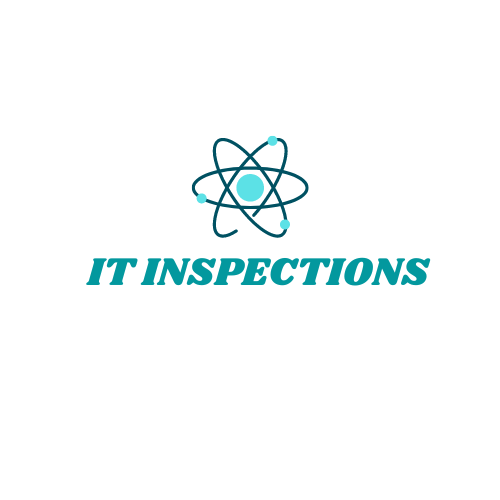Understanding the Importance of Science in UPSC
Science and Technology in UPSC is a crucial segment of the UPSC Civil Services Examination. It appears in both Prelims and Mains, requiring aspirants to thoroughly understand scientific concepts, recent advancements, and their applications. The dynamic nature of this subject demands a strategic study approach that integrates static knowledge with current affairs.
UPSC Science Syllabus Breakdown
1. Science in Prelims
- General Science (Physics, Chemistry, Biology)
- Current affairs related to scientific developments
- Application of science in daily life
2. Science in Mains (GS Paper-III)
- Developments in Science and Technology
- Biotechnology and Its Applications
- Space Technology
- Defence Technology
- Information Technology
- Energy Sector Developments
Best Strategy to Study Science for UPSC
1. Build a Strong Foundation with NCERTs
- Class 6 to 10 Science NCERTs cover fundamental Physics, Chemistry, and Biology concepts.
- Class 11 and 12 NCERTs for selective topics, especially Biology and Physics.
- Focus on concept clarity rather than rote memorization.
2. Refer to Standard Books and Resources
- “General Science” by Lucent for conceptual clarity.
- “Science and Technology” by Ravi P. Agrahari (McGraw Hill) for a UPSC-centric approach.
- Newspapers like The Hindu and magazines like Science Reporter for current affairs.
- PIB, ISRO, and DRDO websites for the latest scientific developments.
3. Follow a Current Affairs-Based Approach
- Science is dynamic; keep track of ISRO missions, NASA projects, climate change updates, and AI advancements.
- Read editorials and government press releases on scientific innovations.
- Use government reports such as NITI Aayog and the Economic Survey for data-driven answers.
Subject-Wise Strategy for Science in UPSC
1. Physics Strategy
- Focus on conceptual understanding, not formulas.
- Key topics: Laws of Motion, Electricity, Magnetism, Optics, and Nuclear Technology.
- Application-based learning, such as renewable energy, satellites, and nuclear reactors.
2. Chemistry Strategy
- Prioritize Environmental Chemistry, Organic and Inorganic Chemistry, and Polymers.
- Understand real-life applications like green chemistry, climate change, and pollution control.
- Link topics with events like hydrogen fuel, lithium-ion batteries, and nano-technology.
3. Biology Strategy
- Most UPSC science questions stem from human physiology, genetics, microbiology, and biotechnology.
- Prepare well for diseases, vaccines, DNA technology, and agricultural biotechnology.
- Follow WHO updates, national health policies, and pandemic-related scientific advancements.
Effective Notes-Making Strategy
1. Use Mind Maps and Diagrams
- Create flowcharts for scientific processes and discoveries.
- Use diagrammatic representations to summarize concepts like the greenhouse effect, CRISPR gene-editing, and the working of satellites.
2. Categorize Information Based on Static and Dynamic
- Static Topics: Fixed concepts such as Newton’s Laws, DNA structure, and Periodic Table.
- Dynamic Topics: Space missions, medical advancements, and new scientific discoveries.
3. Follow a 3-Tier Note Revision System
- First Revision: Read detailed notes and highlight key points.
- Second Revision: Summarize each topic in 10-15 words.
- Third Revision: Revise only keywords, diagrams, and recent developments.
Answer Writing for Science in UPSC Mains
1. Structure Your Answers Well
- Introduction: Define the concept or provide a recent example.
- Body: Discuss its relevance, advantages, challenges, and government initiatives.
- Conclusion: Suggest solutions, policies, or way forward.
2. Use Facts and Data
- Quote reports from the UN, WHO, IPCC, ISRO, and NASA.
- Mention statistics from NITI Aayog, Economic Survey, and government white papers.
3. Integrate Science with Governance and Policy
- Link topics with government schemes such as the National Biotechnology Development Strategy.
- Relate science to national security, agriculture, healthcare, and energy needs.
Practicing MCQs for Prelims
1. Solve Previous Year Questions (PYQs)
- Analyze 10 years of UPSC Prelims papers to understand recurring themes.
- Identify frequently asked areas like biotechnology, space technology, and environmental chemistry.
2. Attempt Mock Tests Regularly
- Take daily and weekly tests from platforms like Vision IAS, Insights, and Drishti IAS.
- Focus on elimination techniques and intelligent guessing strategies.
3. Keep an Eye on Tricky Questions
- Science and Technology UPSC often asks science-based factual questions indirectly.
- Example: Instead of asking, “What is CRISPR?”, UPSC might ask, “CRISPR technology can be used for which of the following purposes?”
Conclusion: Mastering Science for UPSC Success
Studying Science and Technology in UPSC requires conceptual clarity, continuous revision, and a firm grip on current affairs. By following a structured approach—starting with NCERTs, supplementing with standard books, making strategic notes, and integrating current developments—aspirants can maximize their performance in both Prelims and Mains. Regular practice of PYQs, mock tests, and answer writing ensures a high-scoring strategy for UPSC aspirants.

































Add comment